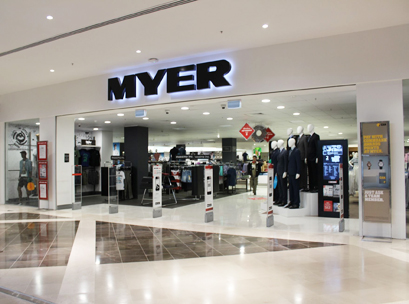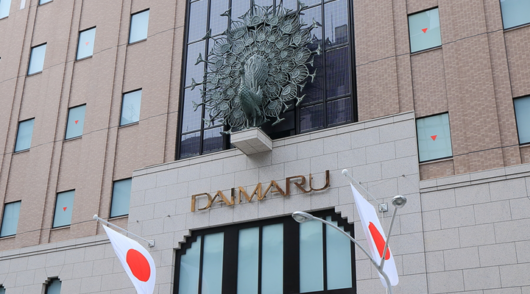Department store Myer has moved to appease frustrated investors, forecasting its first profit growth in four years.
However investors registered a sizeable protest vote against the company’s executive salaries at their annual general meeting.
CEO Bernie Brookes, said Myer was building strong momentum ahead of Christmas, and expected to achieve sales and bottom line profit growth in 2014/15.
Myer’s earnings have been on the slide since 2010/11, buffeted by competition from online, international, and domestic rivals.
“Our comparable stores sales growth is particularly pleasing and does point towards a brighter future, providing us with opportunities because of the investments we’re making in the business,” Brookes said.
Sales excluding the impact of new stores and closures have grown in eight of the last nine quarterly trading periods, including the recent three months to October.
Myer’s priority is to improve customer service and the quality of its merchandise, amid $80 million of capital investment, Brookes said.
Chairman Paul McClintock, said the board was confident Myer would thrive as the only Australian owned department store, since David Jones was bought out by South Africa’s Woolworths.
But shareholders vented their frustration about the company’s disappointing performance.
Myer’s share price has fallen 40 per cent in the past 12 months, and is almost 60 per cent lower than its issue price in 2009.
One shareholder criticised the board for comprising accountants and human resources experts with little “merchant” experience.
“Do you have sufficient merchants, people who understand the contents of what you are selling, and if it is good enough and different enough to excite people to say `I must go to Myer and spend money?'” he asked.
Brookes pointed to changes in its leadership, including appointing former Apparel Group and Burberry Group executive Daniel Bracken to head of merchandise and marketing.
More than 16 per cent of shareholder votes went against Myer’s executive pay, as Brookes’ fixed pay increased 11 per cent to $2 million in 2013/14, despite a 23 per cent slide in profit.
McClintock defended the pay rise as an inflationary adjustment after three years of no changes to Brookes’ base pay.
The chairman also took a swipe at GST laws, accusing federal and state governments of a lack of political will to get rid of loopholes that allow overseas online retailers to avoid paying GST.
AAP






